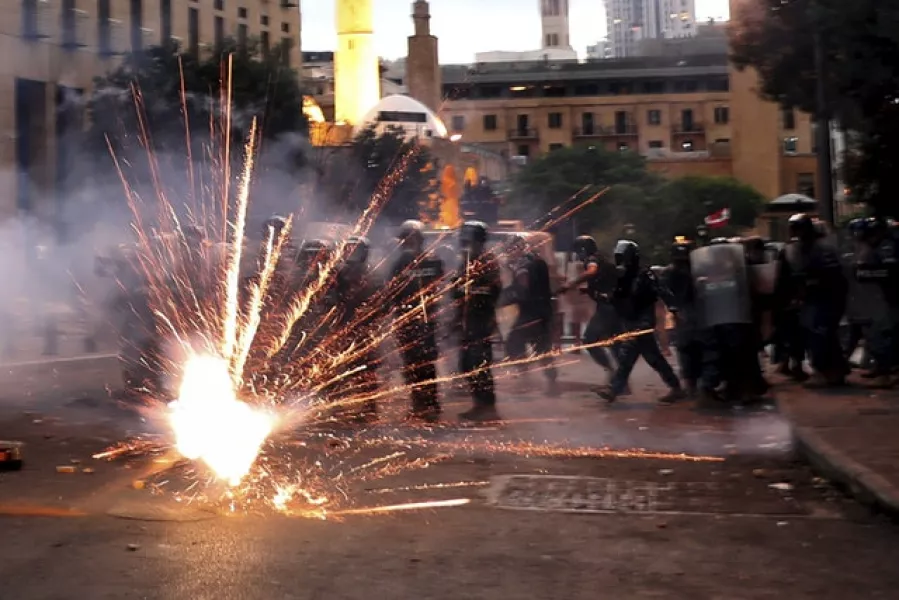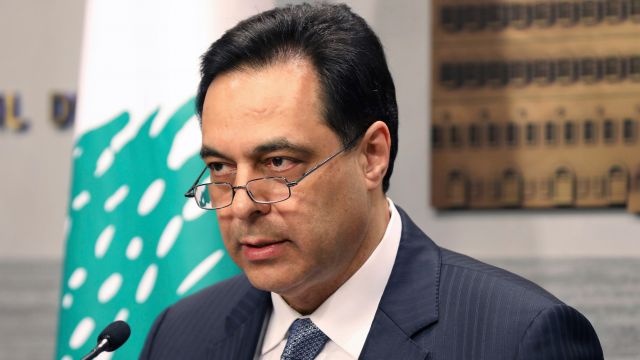In a brief televised speech after three of his ministers resigned, Hassan Diab said he was taking “a step back” so he could stand with the people “and fight the battle for change alongside them”.
“I declare today the resignation of this government. May God protect Lebanon,” he said.

The move risks opening the way to dragged-out negotiations over a new cabinet amid urgent calls for reform.
It follows a weekend of anti-government protests after the August 4 explosion in Beirut’s port that devastated the facility and caused widespread destruction, killing at least 160 people and injured 6,000.
The moment typified Lebanon’s political dilemma. Since October, there have been mass demonstrations demanding the departure of the sectarian-based leadership over entrenched corruption, incompetence and mismanagement.
But the ruling oligarchy has held on to power for so long — since the end of the civil war in 1990 — that it is difficult to find a credible political figure not tainted by connections to them.

Mr Diab blamed corrupt politicians who preceded him for the “earthquake” that has hit Lebanon.
“They (political class) should have been ashamed of themselves because their corruption is what has led to this disaster that had been hidden for seven years,” he added.
“I have discovered that corruption is bigger than the state and that the state is paralysed by this (ruling) clique and cannot confront if or get rid of it,” said Diab, who was a professor at the American University of Beirut before he took the job.
Although his resignation had appeared inevitable after the catastrophe, he seemed unwilling to leave and two days ago made a televised speech in which he offered to stay on for two months to allow various factions to agree on a road map for reforms. But pressure from within his own cabinet proved to be too much.
His government was formed after his predecessor, Saad Hariri, stepped down in October in response to the demonstrations. It took months of bickering among leadership factions before they settled on Mr Diab.
His government, which was supported by Hezbollah and its allies and was seen as one-sided, was basically doomed from the start, tasked with meeting demands for reform but made up of all the factions that reformers wanted out. Now the process must start again, with Mr Diab’s government in a caretaker role as the same factions debate a new one.
The weekend protests saw clashes with security forces firing tear gas at protesters.
The explosion is believed to have been caused by a fire that ignited a 2,750-ton stockpile of highly volatile ammonium nitrate. The material had been stored at the port since 2013 with few safeguards despite numerous warnings.
The result was a disaster Lebanese blame squarely on their leadership’s corruption and neglect. Losses from the blast are estimated to be between 10 billion and 15 billion dollars, with nearly 300,000 people left homeless.







